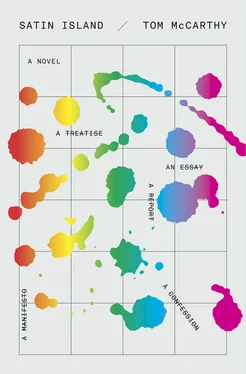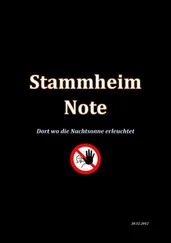2.8When I arrived at Madison’s, we had sex. Afterwards, lying in bed, I asked her what she’d been doing in Turin. I wasn’t in Turin, she answered; you were. But you were too, I said. No I wasn’t, she replied. You told me that you had been once, I said — when we Skyped, just last night. I never said I’d been in Turin, she mumbled into her pillow; she was half asleep. She was silent for a few moments, and I thought she’d drifted off. After a while, though, she continued mumbling. I said, she told me, that I’d been in Torino-Caselle. Okay, I said, Torino-Caselle: what were you doing there? Waiting, she said, just like you were. What for? I asked. A plane, she said. What else do people wait for in an airport?
3.1My meeting with Peyman didn’t take place all that week. He’d been delayed in Vienna for so long that by the time a flight became available his schedule had him in Seattle, so he’d flown straight there. This was annoying — beyond annoying: frustrating. In fact, his absence filled me with what I can only describe as anxiety. Not that his presence made you feel un-anxious, calm; far from it. The whole place ran on anxiety: it was Peyman’s motor-oil, his generative fuel. But there’s anxiety and anxiety. With the Project contract won, knowing the weight he attached to it, I, like everyone else in the Company, was now anxious to see Peyman and, through Peyman, to connect: either to some rich and stellar network that we pictured lying behind this name, Koob-Sassen; or, if not that, then at least to … something. Being near Peyman made you feel connected. In his absence, I spent the week wrapping up other briefs that I’d been working on: transcribing audio files, drawing up charts, tweaking documents, drifting around websites. Mostly drifting around websites.
3.2What does an anthropologist working for a business actually do ? We purvey cultural insight. What does that mean? It means that we unpick the fibre of a culture (ours), its weft and warp — the situations it throws up, the beliefs that underpin and nourish it — and let a client in on how they can best get traction on this fibre so that they can introduce into the weave their own fine, silken thread, strategically embroider or detail it with a mini-narrative (a convoluted way of saying: sell their product). Ethnographers do field research, creating photomontages out of single moments captured in a street or café; or they get sample citizens — teenagers, office workers, mums — to produce video-diaries for them, outlining their daily routines in intimate detail, confiding to the camera the desires, emotions, aspirations and so forth that visit them as they unload a dishwasher, lace up trainers, or sip foam through that little slit you get in plastic coffee-cup lids. It’s about identifying and probing granular, mechanical behaviours, extrapolating from a sample batch of these a set of blueprints, tailored according to each brief — blueprints which, taken as a whole and cross-mapped onto the findings of more “objective” or empirical studies (quantitative analysis, econometric modeling and the like), lay bare some kind of inner social logic, which can be harnessed, put to use. In essence it’s not that much different from what soothsayers, ichthyomancers, did in ancient times: those wolfskin-clad men who moved from stone-age settlement to stone-age settlement, cutting fish open to tease wisdom from their entrails. The difference being, of course, that soothsayers were frauds.
3.3Once, for a brief time, I was famous. My renown came in the wake of my first — and only — major academic study. The study’s subject was club culture. For three years, in the nineties — my mid-to-late twenties — I spent a large portion of my waking (and sleeping) hours among clubbers. I took a barman job in Bagleys; spent off-nights at the Fridge, the Ministry of Sound, the Velvet Rooms and Turnmills; took poppers, speed, MDMA; the lot. By the end I was helping procure venues for illicit raves, helping direct crowds to these through coded messages put out on pirate radio stations, cellular networks and the array of whisper-lines that spring up around this type of dubious activity. I then spent two more years writing it all up. On my study’s publication (first as a doctoral thesis, then, two years later, with me in my mid-thirties, as an actual book that real people could buy), what was generally found to be most notable about it wasn’t the insight it afforded into the demimonde or “mindset” or whatever you want to call it of clubbers, but rather the book’s frequent and expansive “asides” in which I meditated on contemporary ethnographic method and its various quandaries.
3.4For example: I considered at great length the question of field. In classical anthropology, there’s a rigid distinction between “field” and “home.” Field’s where you go to do your research, immersing yourself, sometimes at great personal risk, in a maelstrom of raw, unsorted happening. Home’s where you go to sort and tame it: catalogue it, analyze it, transform it into something meaningful. But when the object of your study is completely interwoven with your own life and its rhythms, this distinction vanishes: Where (I asked, repeatedly) does home end and field begin? Or — and this problem follows from the last — I reflected on the anthropologist’s relation to the figures known as his “informants.” If these people’s background and culture are at base no different from your own, and if these people are your friends — albeit ones who might (or then again, might not) know of your sidebar ethnographic carryings-on — then how should you interrogate them? What constitutes “interrogation” in the first place? In what way should it be staged? Does sex with a Lycra-miniskirted informant on your writing table at five a.m. when you’re both tripping count? Does passing out with someone in a toilet? Then, in the train of that one — and I’m not skipping the solutions to these predicaments, these pickles, since I didn’t provide any — comes the question of the anthropologist’s persona . Since the necessary act of approaching the familiar as a stranger, of behaving — even to yourself — as if you didn’t understand the situations that in fact you do, is an obvious contrivance; and since, conversely, pretending to understand them, at a profound, unmediated level, to think and believe and desire certain premises, propositions, objects and outcomes, for the purpose of attaining better access to the subculture you’re infiltrating, is equally contrived; or, to flip it back the other way again, to actually think and believe and desire these, but to be forced nonetheless, in your role as anthropologist, to pretend you’re being and doing what you really are being and doing — in brief, since all this shit entails a constant shifting of identities, a blurring of positions and perspectives, you end up lost in a kaleidoscope of masquerades, roles, general make-believe.
3.5I wrote about all this. It made me famous — relatively speaking. Let’s not get carried away. A famous anthropologist, even one with a real book out, is about as well-known as a third-division footballer. No, less: let’s say an Olympic badminton player, or a reality-TV contestant from an unpopular show five years ago. And come to think of it, I’m even exaggerating the degree of fame my study brought me in my own field, let alone the world of letters. Rather than “made me famous,” it would be more accurate to say that the book “garnered me some attention”—the odd public reading, the odd newspaper review; and, as they say, tomorrow’s fish (unlike ichthyomancers) can’t read. It was enough attention, though, to bring me onto Peyman’s radar, there to beep, or throb, or do whatever things on radars do; which, in turn, prompted him to pluck me from the dying branches of academia and re-graft me inside the febrile hothouse of his company.
Читать дальше












